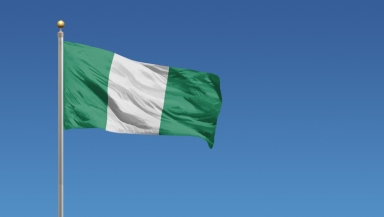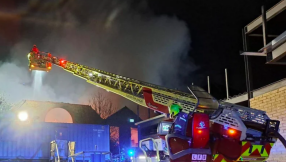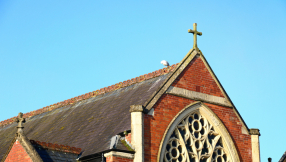
[WARNING: Contains graphic details of violence]
Reports have emerged of a massacre over the Easter weekend in which 10 Christians were killed in Nigeria.
The attack occurred on Easter Monday across three communities in the parish of St Thomas the Apostle in Bokkos, Plateau State. It has been attributed to Fulani militants.
The victims included a pregnant woman and her unborn baby, Aid to the Church in Need (ACN) reports.
Fr Andrew Dewan, director of communications in Pankshin Diocese, where the attack took place, shared horrific details of how the pregnant woman's stomach was "slit open".
"The baby was not spared," he said.
"There is a pattern to these attacks, and they're an ongoing feature of living in the region. They might be linked to the attacks over Christmas."
In those attacks, spread over four days at Christmas, Fulani militants killed at least 300 Christians in a rampage across 26 villages in Bokkos. Sixteen camps for internally displaced persons (IDPs) were set up in Bokkos after the tragedy to shelter those displaced from their homes.
Fr Dewan fears that the Easter Monday attack may have been carried out in revenge for the killing of two Fulani youths, one of whom was beheaded.
"It's a cycle of violence. Locals are looking for ways to defend themselves against the barrage of violence," he said.
"The security response of the government is inadequate. In times of crisis, communities don't have confidence in governments to protect them. They take shelter in churches, which aren't used to dealing with such a deluge of IDPs," he said.
Despite the challenges, he said that faith was sustaining the Church and IDPs but he also said that the government "needs to play their part" in protecting the life of all citizens.
"It's for us to sustain our preaching on the Gospel values, and exhort the government to safeguard the lives of the people," he said.
"Faith plays an important part, if not for the faith that has sustained the IDPs so far we would witness large scale conversion to other religions. In the face of these challenges, the IDPs have remained strong."
He admitted that it has been challenging for the churches to support so many displaced people but said they were ready to stand by them "through thick and thin".
"Imagine cooking for thousands of people per month. We haven't planned or stocked up for these emergencies, so we're often caught unprepared," he said.
"We often need to make appeals to organisations to help the diocese at the receiving end of these brutal attacks.
"It's tough and challenging, so our response to these humanitarian emergencies has reinforced our faith in the Gospel. We see a church which is responsive, and which doesn't forget their people or people of other faiths."













